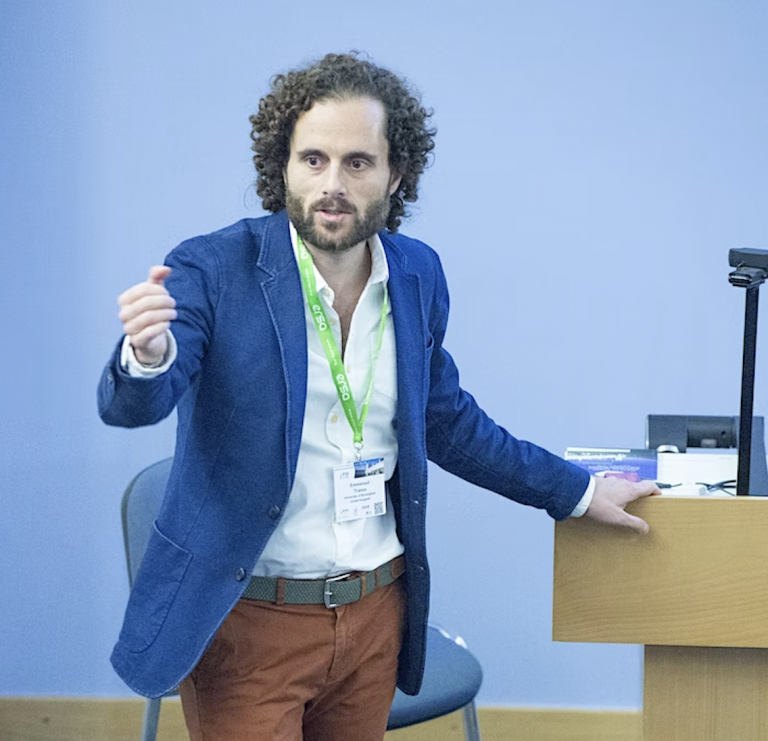Internet and firm productivity: a multilevel approach based on experienced broadband speed data
11 January 2023, 4:00 pm–5:00 pm

This is a hybrid event on the UCL campus.
This event is free.
Event Information
Open to
- All
Cost
- Free
Organiser
-
Dr Max Nathan
Location
-
UCLGower StreetLondonWC1E 6BT
The discussion about the potential productivity gains digital technologies can lead to is almost as old as digital technologies themselves. From early futuristic approaches to various facets of the productivity paradox, there are still open questions regarding if and how internet and its usage are linked to positive economic effects. The usual caveat to unpack this relationship is detailed enough data about the internet usage that can be linked to economic outputs. This problem becomes even more severe if we are interested in capturing whether such a relationship is affected by the attributes of place and space. To tackle the above we develop a multilevel framework that allow us to observe individual firms, their productivity as well as other firm characteristic. We are able to match these observations with variables depicting the experienced internet speeds within the local authorities these firms are located. Instead of utilising advertised internet speeds which are hardly ever met in reality, we employ novel micro data which illustrate how internet connectivity has been experienced by individual users. We then create meaningful aggregates at the local authority level, which enter our multilevel models that also control for the effects of place and space. Our main results indicate that even after holding the median internet speed constant, the higher the 90th percentile of all speeds within a local authority is (or, in other words, when fast speeds get faster), the higher the firm productivity is for a firm locating within this local authority.
About the Speaker
Emmanouil Tranos
Professor of Quantitative Human Geography at University of Bristol
a Professor of Quantitative Human Geography at the University of Bristol and a Fellow at the Alan Turing Institute. His research has exposed the spatial dimensions of digital technologies and the digital economy from their early stages onwards. He has published extensively on the geographies of various digital technologies: from the internet’s backbone networks and the internet’s uptake at a global scale, to the usage of mobile phone and internet speeds at a very granular level of spatial and temporal resolution. His research has revealed how such technologies and their uptake can lead to economic effects related to economic productivity and business creation at a very fine geographical scale. He has explored and modelled online behaviours and how such behaviours are related with cities and spatial structure; for instance, working from home as well as internet access and usage. His research revealed the different roles different cities and regions perform within the digital landscape. Crucially, he has been developing research frameworks and computational workflows to use the digital traces human and, more specifically, economic activities leave behind to better understand cities, their structure, and economies. This is important as such digital traces allow us to observe behaviours and phenomena and, consequently, answer research questions that traditional data sources have not allowed us to do. To effectively handle the complexities of such unconventional data – from mobile phone records to very large archives of websites – his research employs diverse methodological tools from data science, computational linguistics, as well as network science alongside more traditional geographical methods.
 Close
Close

